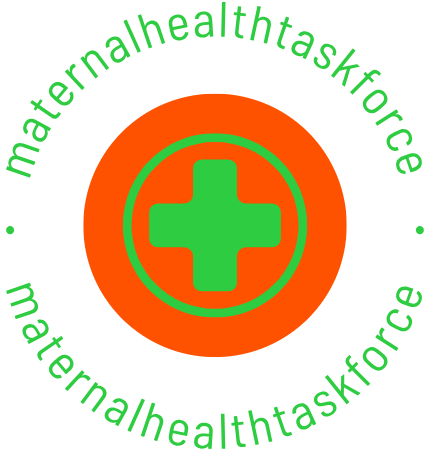Maternal health for high-risk pregnancies requires special care and attention. A high-risk pregnancy means that the mother or baby may face health complications during pregnancy, childbirth, or after delivery. However, with the right management and support, mothers can have a healthy pregnancy, even with potential risks.

What Is a High-Risk Pregnancy?
A high-risk pregnancy occurs when there are factors that could complicate the pregnancy or pose a danger to the mother and baby. Some common causes of a high-risk pregnancy include:
- Advanced maternal age: Women over the age of 35 are more likely to experience complications.
- Pre-existing health conditions: Conditions such as diabetes, high blood pressure, or heart disease can lead to complications.
- Multiple pregnancies: Carrying twins, triplets, or more increases the risk of complications.
- Lifestyle factors: Smoking, alcohol use, or poor nutrition can also contribute to high-risk pregnancies.
Understanding these factors helps in managing maternal health for high-risk pregnancies.
Prenatal Care for High-Risk Pregnancies
One of the most important aspects of managing maternal health for high-risk pregnancies is receiving early and regular prenatal care. Frequent check-ups allow healthcare providers to monitor both the mother and baby’s health closely.
Key components of prenatal care include:
- Routine tests: Blood tests, ultrasounds, and other screenings help detect any problems early.
- Medications: Mothers may need medication to control conditions such as high blood pressure or diabetes.
- Monitoring fetal development: Extra ultrasounds and tests may be required to ensure the baby is growing well.
By following a regular prenatal care routine, mothers can catch complications early and take the necessary steps to ensure a healthy pregnancy.
Managing Pre-Existing Conditions
If a mother enters pregnancy with pre-existing health conditions, managing those conditions becomes critical. Conditions like diabetes or high blood pressure require careful attention to protect both the mother and baby.
For mothers with maternal health for high-risk pregnancies:
- Control blood sugar: For diabetic mothers, managing blood sugar through diet, medication, and regular monitoring is essential.
- Monitor blood pressure: High blood pressure can lead to serious complications like preeclampsia. Medication and lifestyle changes help control it.
- Maintain a healthy diet: Eating nutritious foods supports overall health and helps manage conditions like gestational diabetes or obesity.
Managing these conditions during pregnancy can reduce the risks associated with high-risk pregnancies.
Emotional Support During High-Risk Pregnancy
High-risk pregnancies can be stressful and emotionally overwhelming for mothers. Worrying about the baby’s health and dealing with frequent doctor visits can lead to anxiety. Emotional support plays a vital role in improving maternal health for high-risk pregnancies.
Ways to support emotional well-being include:
- Talking to a counselor: Professional counseling can help mothers manage stress and anxiety during pregnancy.
- Support groups: Joining a group of other mothers going through similar experiences can provide comfort and advice.
- Family support: Encouraging open communication with loved ones helps mothers feel less isolated.
Prioritizing mental health is just as important as physical health in a high-risk pregnancy.
Rest and Self-Care
Mothers with high-risk pregnancies should prioritize rest and self-care. Overexertion can worsen complications, so it is essential to listen to the body and rest when needed.
Some tips for self-care during a high-risk pregnancy include:
- Getting enough sleep: Sleep helps the body recover and supports overall health.
- Taking breaks: Avoid overdoing activities, especially if advised by a doctor.
- Engaging in gentle exercise: Low-impact activities such as walking or prenatal yoga can reduce stress and improve circulation.
By practicing self-care, mothers can protect their health and improve their overall well-being.
Delivery Planning for High-Risk Pregnancies
For mothers with maternal health for high-risk pregnancies, careful planning for delivery is crucial. Some high-risk pregnancies may require early delivery or a planned cesarean section (C-section).
- Delivery options: Based on the pregnancy’s progress, healthcare providers may recommend delivering early to reduce risks.
- C-section considerations: If a vaginal delivery is too risky, a C-section may be planned for the safety of both the mother and baby.
- Hospital care: Choosing a hospital with specialized care for high-risk pregnancies ensures that both mother and baby receive the attention they need during and after delivery.
Having a well-prepared plan for delivery helps reduce anxiety and ensures a safe childbirth experience.
Conclusion
In conclusion, maternal health for high-risk pregnancies requires extra care, attention, and emotional support. With regular prenatal visits, proper management of pre-existing conditions, and emotional well-being, mothers can reduce the risks associated with high-risk pregnancies. By focusing on self-care, monitoring health closely, and planning for a safe delivery, mothers can navigate their high-risk pregnancy and protect both their health and their baby’s health.










